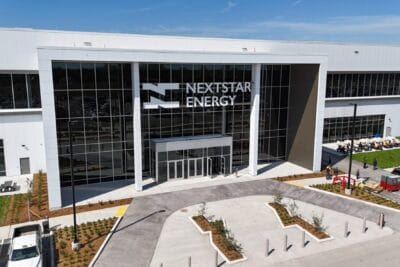Xpeng opens R&D centre in Munich
Less than a year and a half after Xpeng’s market launch in Germany, the Chinese company is underscoring the strategic importance of Germany and Europe for Xpeng with this move. After all, this is an exciting new sales market for Xpeng. At the same time, Volkswagen is an important shareholder and cooperation partner in Germany.
He Xiaopeng, Chairman and CEO of Xpeng, said at the IAA Mobility in Munich: “XPENG doesn’t just build cars, we are creating smart and sustainable mobility experiences for global users. The new Munich R&D center demonstrates our strong commitment to creating these experiences together with Europe, deepening partnerships, driving local innovation, and serving European users with cutting-edge mobility solutions.”
The new location in Munich is Xpeng’s ninth R&D centre overall. Most of them are located in China, with additional facilities in Silicon Valley and San Diego (both in the United States). Xpeng hopes that the R&D centre in Munich will enable it to “get closer to European users and ensure their needs are reflected in its future mobility innovations.” After all, the European market plays an important role in Xpeng’s efforts to accelerate its global growth, and the company says it is investing heavily in this market. Xpeng’s announcement coincides with rival Tesla’s announcement that it plans to open a European development centre in Berlin-Köpenick.
It is not yet known what the focus of Xpeng’s research and development in Munich will be. However, job advertisements indicate that Xpeng is currently looking to hire three junior test engineers for the areas of electric drive & charging, in-car entertainment and ADAS (advanced driver assistance systems) for the location.
CEO He Xiaopeng’s presentation at IAA Mobility was themed ‘In Europe, With Europe.’ He Xiaopeng also brought the new version of the P7 electric sedan car to its European premiere and presented the progress made by Xpeng’s AI ecosystem at the motor show. Xpeng also announced that it is aiming for series production of L4 autonomous vehicles in 2026 and then plans to carry out its first robot taxi pilot projects in China.
This article was first published by Florian Treiß for electrive’s German edition.





0 Comments